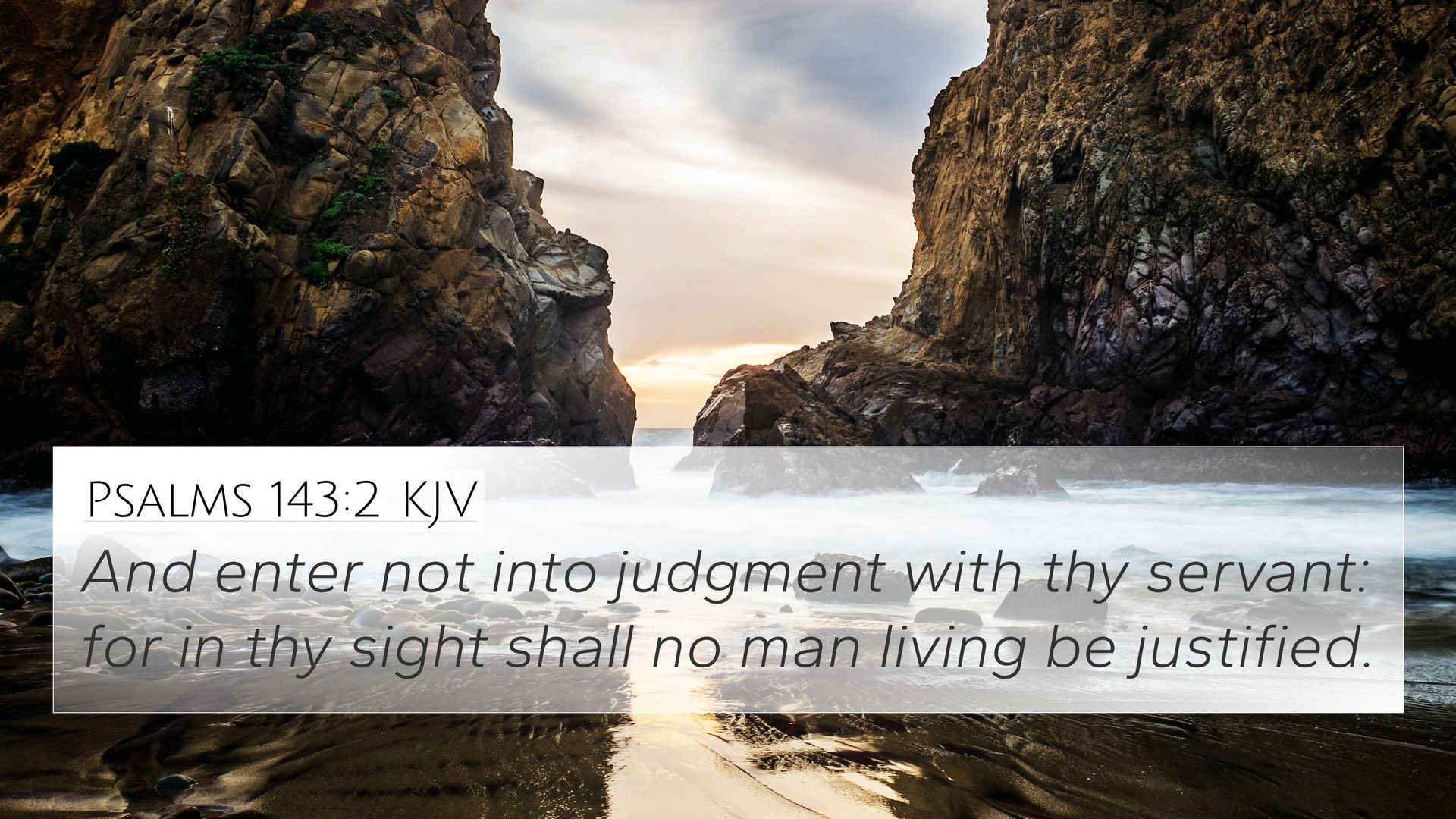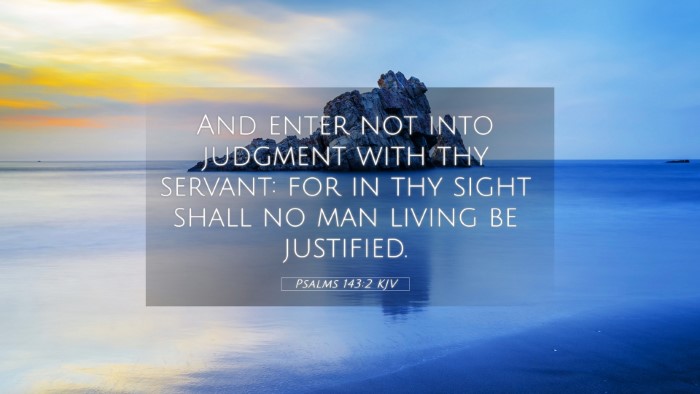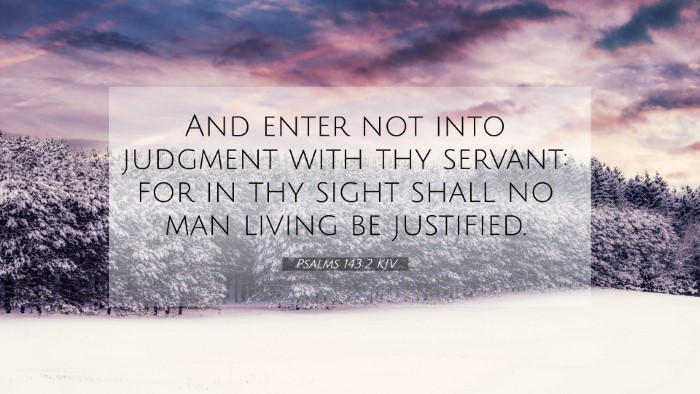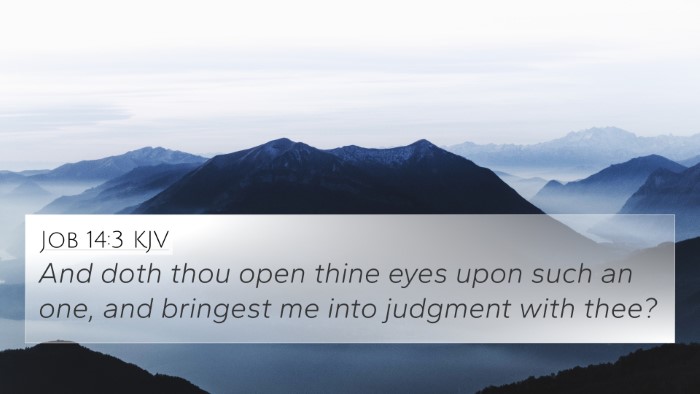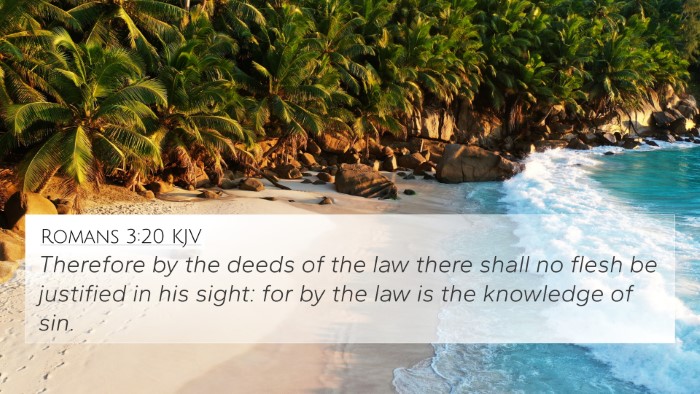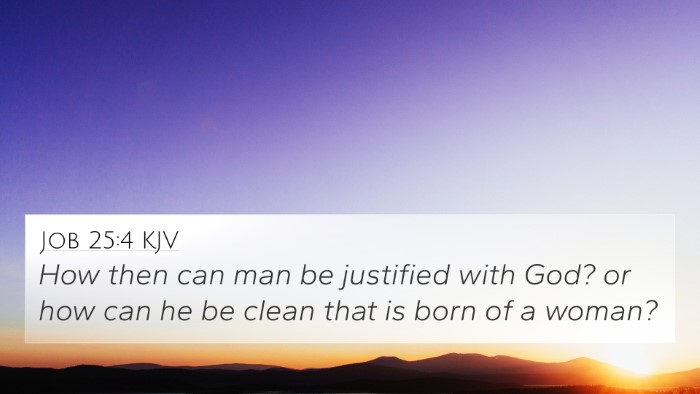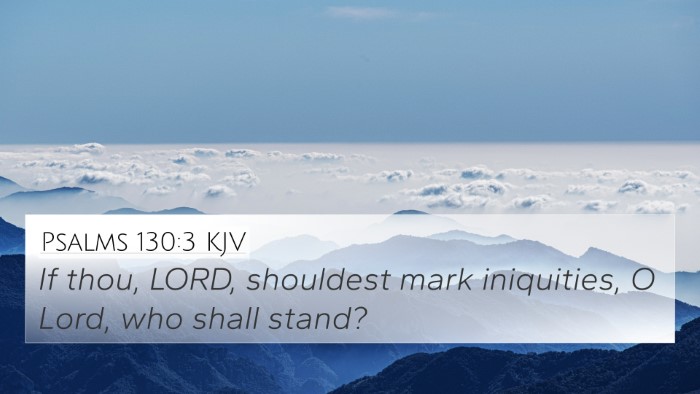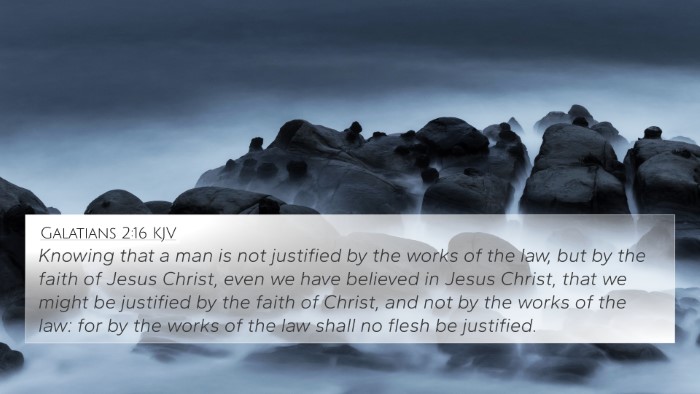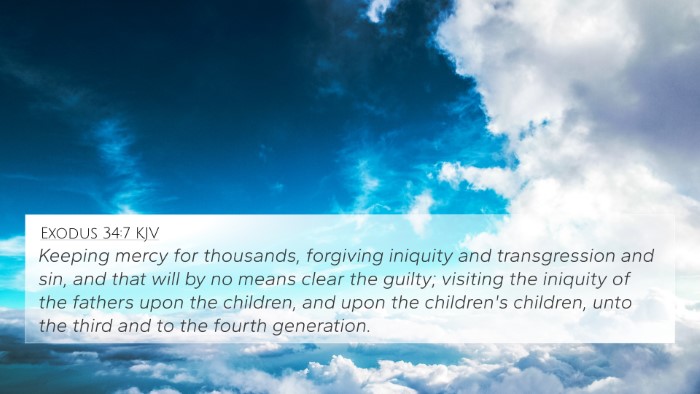Psalms 143:2 - Understanding the Verse
Verse Text: "And enter not into judgment with thy servant: for in thy sight shall no man living be justified." - Psalms 143:2 (KJV)
Summary of Meaning
Psalms 143:2 expresses a profound understanding of human humility before God. The psalmist, potentially amid despair, pleads for mercy and acknowledges that no one can stand justified in the presence of the divine judgment. This verse is an appeal for grace rather than condemnation, reflecting a theme recurrent throughout the Scriptures.
Commentary Insights
-
Matthew Henry:
Henry emphasizes the need for humility in prayer, recognizing that we cannot be justified by our deeds before God. He notes that the psalmist asks God not to enter into judgment, highlighting the importance of relying on divine mercy rather than human righteousness.
-
Albert Barnes:
Barnes elaborates on the significance of 'thy servant,' indicating that the psalmist acknowledges his role and limitations before God. He suggests that the verse is a plea for forgiveness, reflecting an understanding that God's justice is perfect and that human beings fall short of this standard. Barnes connects this to the hope of ultimate redemption found in faith.
-
Adam Clarke:
Clarke interprets the verse as recognizing the sinful nature of humanity and the impossibility of standing before God without His grace. He stresses the necessity of divine assistance in overcoming sin and the futility of human efforts to attain justification through works alone.
Related Bible Cross-References
- Romans 3:20: "Therefore by the deeds of the law there shall no flesh be justified in his sight: for by the law is the knowledge of sin."
- Galatians 2:16: "Knowing that a man is not justified by the works of the law, but by the faith of Jesus Christ..."
- Ephesians 2:8-9: "For by grace are ye saved through faith; and that not of yourselves: it is the gift of God: Not of works, lest any man should boast."
- Psalm 130:3: "If thou, LORD, shouldest mark iniquities, O Lord, who shall stand?"
- Isaiah 64:6: "But we are all as an unclean thing, and all our righteousnesses are as filthy rags; and we all do fade as a leaf..."
- 1 John 1:8: "If we say that we have no sin, we deceive ourselves, and the truth is not in us."
- Luke 18:13: "And the publican, standing afar off, would not lift up so much as his eyes unto heaven, but smote upon his breast, saying, God be merciful to me a sinner."
Thematic Connections
Understanding Psalms 143:2 requires a comprehensive examination of biblical themes related to judgment, mercy, and justification. The connections between this verse and others emphasize the overarching biblical narrative of human dependency on God’s grace.
Tools for Bible Cross-Referencing
Utilizing tools such as a Bible concordance or a bible cross-reference guide can enhance your understanding of interrelated scriptures and improve your bible cross-referencing study methods. These tools can help identify key themes and theological concepts across the Bible.
How to Use Cross-References Effectively
When studying the Bible, how to find cross-references can be as crucial as understanding single verses. By recognizing connections with passages that explore themes of justice, mercy, and faith, one can gain deeper insights into the message of scriptures.
Identifying Inter-Biblical Dialogue
Engaging in comparative Bible verse analysis allows readers to see how various authors within the biblical text converse about common themes, such as the concept of being justified before God and the need for divine mercy.
Conclusion
Psalms 143:2 serves as a theological reflection encapsulating humanity's posture before God—a cry for mercy acknowledging the profound need for grace in a fallen world. This psalm resonates with the teachings found throughout the Bible, encouraging believers to seek God's grace rather than depend solely on their righteousness.
